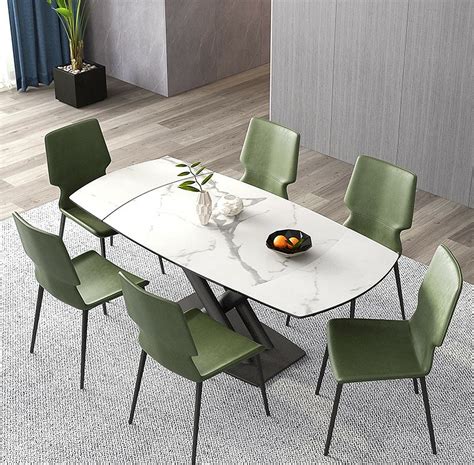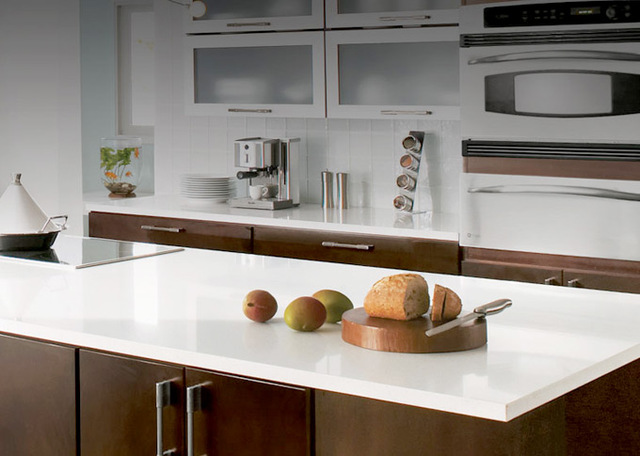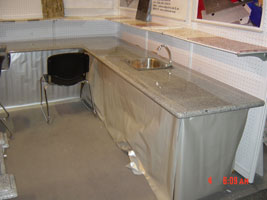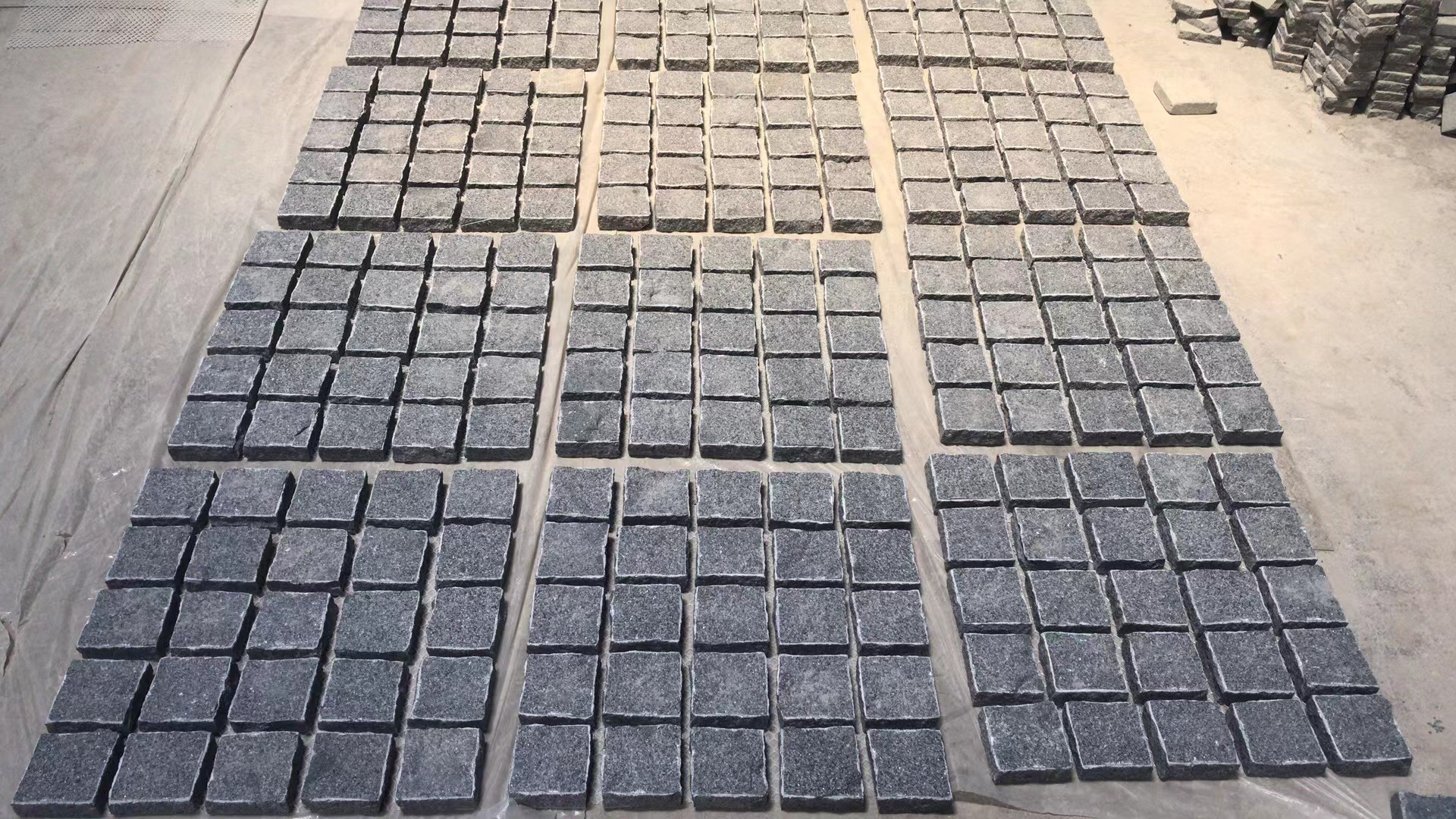Sintered stone
Sintered stone, also known as ultra-compact surface or porcelain slab, is a type of engineered stone made from a mixture of natural minerals, pigments, and resins that are compressed under high pressure and heat. It is an increasingly popular material for countertops, flooring, and other architectural applications due to its many benefits, including:
Durability: Sintered stone is extremely hard and resistant to scratches, stains, and impact damage, making it an ideal choice for high-traffic areas.
Hygiene: Sintered stone is non-porous, which means that it does not absorb liquids or bacteria, making it an ideal choice for food preparation surfaces.
Easy Maintenance: Sintered stone is easy to clean and maintain, requiring only regular wiping with a damp cloth.
Aesthetics: Sintered stone is available in a wide range of colors, patterns, and finishes, allowing it to be easily integrated into any design scheme.
Versatility: Sintered stone can be cut, drilled, and machined like natural stone, making it suitable for a wide range of applications, including countertops, flooring, wall cladding, and more.
Sustainability: Sintered stone is an environmentally friendly choice, as it is made from natural materials and does not emit any harmful chemicals.
Overall, sintered stone offers a combination of durability, hygiene, ease of maintenance, aesthetics, versatility, and sustainability that makes it an excellent choice for a wide range of applications.
 Sintered stone
Sintered stone




